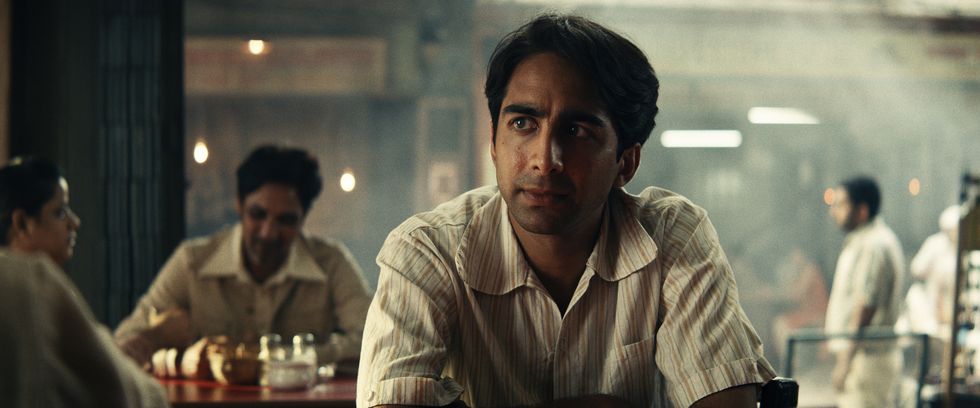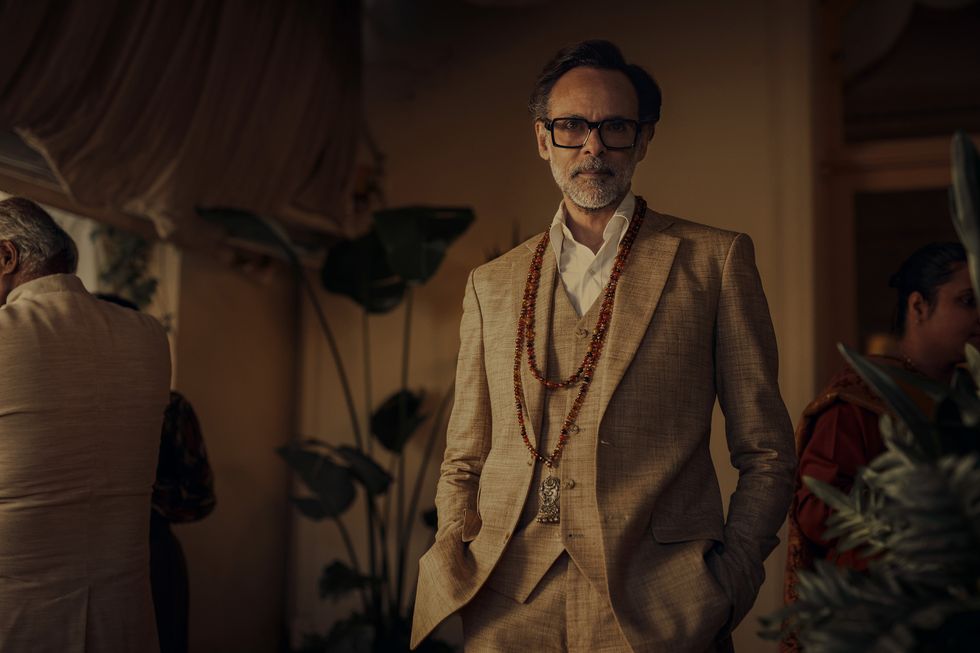After almost 20 years of discussions, plans, and aborted productions, Gregory David Roberts’ best-selling 2003 novel, Shantaram, is finally hitting the screen.
Having gone through potential leading men (Russell Crowe! Then Johnny Depp! Then Joel Edgerton!), writers and directors quicker than ice melting in the Mumbai sun, it finally found a home in Apple TV+. Sons of Anarchy star Charlie Hunnam was soon cast as Lin, the protagonist of the epic story.
Four years later, we have our final, finished retelling of the story; a 12-episode series that, like the far-reaching action in the book, will jump from Australia to India to Afghanistan and beyond. However, viewers of the new production – like the readers of the book – will likely find themselves questioning the story: how much of this, if anything, was based on true life?
In Roberts’ 933-odd page book, Lindsay (known as Lin) is a convicted Australian bank robber, who escapes from Pentridge Prison and flees to India. While in Mumbai, he makes friend with a local man called Prabaker. After they visit his village of Sunder, Prabaker’s mother gives Lin a new Maharashtrian name: Shantaram, meaning Man Of God’s Peace.
After the pair are robbed, Lin is forced to live in the slums of Mumbai, and in order to connect with the community, Lin sets up a make-shift health clinic and becomes embedded in the locals’ lives and culture.
There’s a love story plot when Lin falls in love with Karla, a Swiss-American woman, but Lin is pulled back into a dark underworld. He is recruited to carry out illegal activities by organised crime gangs, and eventually ends up in prison again, this time Mumbai’s Arthur Road prison. He ends up being protected by the Afghan mafia and is released, but ends up in Afghanistan smuggling weapons for mujahideen freedom fighters. When a tragedy occurs, Lin finally takes stock of his life and decides he wants to lead a more honest, decent life. But is he too embedded in the dark side to ever really change?
Is Shantaram based on a true story?
Roberts himself has an epic backstory of his own, and much of it is very similar to his novel. In 1978, Roberts - a heroin addict at the time - was sentenced to 19 years in jail for a series of armed robberies on banks and building socieities. However two years later, he escaped from Pentridge Prison - just like Lin in the book - and became one of Australia’s most wanted fugitives for 10 years.
In an interview with the BBC, Roberts then confirmed that he did make a friend in Mumbai, who’s mother also gave him the name Shantaram, which really moved him: “I went into the jungle and I sobbed…because they saw something in me that I didn't know was there.” This interview also states that “Roberts was arrested and thrown in prison in Bombay, where he was tortured. A man eventually bribed the police to release him, and that man turned out to be a senior figure in the Indian mafia. Roberts repaid his kindness by going to work for him. He smuggled drugs and passports and ran with the mujahedin in Afghanistan.”
In 1990, Roberts was captured again in Frankfurt, and was extradited to Australia and served six years in prison; two of which were in solitary confinment. It was here he began writing the manuscript for Shantaram, but his work was destroyed twice while in jail. He told Entertainment Weekly: “I was about 400 pages in when I came back from an exercise period and discovered that a prison officer had torn my manuscript into tiny fragments and that they were flowing out of the toilet bowl. He was a very harsh critic. If you get past something like that, you can take some criticism when you get it from book reviewers.”
Roberts now is an musician as well as an author, and has most recently released a book called The Spiritual Path, and can be found regularly posting spiritual and philosophical quotes on his Instagram account.
What does Roberts say about it all?
In an interview with Platform Magazine, he said: “As with the novel Shantaram, the experiences in The Mountain Shadow [the follow up book] are derived from my own real experiences, and the characters, dialogue, and narrative structure are all created.” In an interview with The Indian Express he elaborated further: “Shantaram is not an autobiography, it’s a novel. If the book reads like an autobiography, I take that as a very high compliment, because I structured the created narrative to read like fiction but feel like fact. I wanted the novel to have the page-turning drive of a work of fiction but to be informed by such a powerful stream of real experience that it had the authentic feel of fact.”
Shantaram streams on Apple TV+ from October 14.















